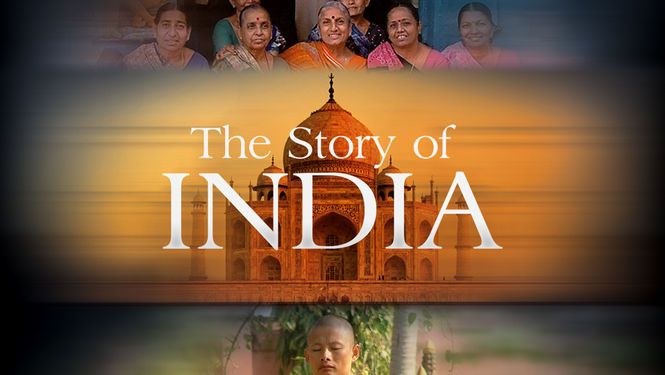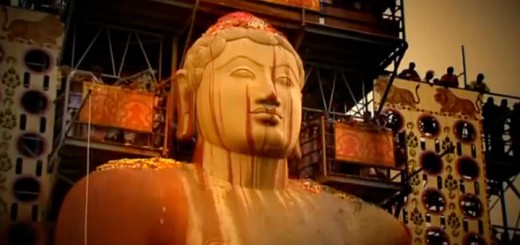The Story of India- Beginnings, The Power of Ideas, The Meeting of Two Oceans, Freedom
The history of India. It was originally aired on BBC Two in six episodes in August and September 2007 as part of the BBC season "India and Pakistan 07", which marked the 60 years independence of India and Pakistan. An accompanying text to the series, titled Michael Wood: The Story of India, was published by BBC Books on 16 August 2007.

Beginnings:-
Michael Wood travels throughout the foreign subcontinent, tracing the richness and diversity of its buildings, artefacts and landscapes. Through ancient manuscripts and oral tales Wood charts the first human migrations out of Africa. He travels from the tropical backwaters of South India through lost ancient cities of the Indus Valley Civilization in today's Pakistan to the vibrant landscapes of the Ganges plain. Archaeological discoveries in the Bactria–Margiana Archaeological Complex in Turkmenistan by Soviet archaeologist Viktor Sarianidi, including horse-drawn carts (mentioned in the Rig Veda), cast new light on India's past. Wood also attempts to re-create soma, an ancient drink recorded in the Rig Veda and Rig Veda has been also stated that this had been miluted from 5000 BC.

The Power of Ideas:-
The second episode in Michael Wood's series moves on to the revolutionary years after 500BC – the Age of the Buddha and Mahavira. Travelling by rail to the ancient cities of the Ganges plain, by army convoy through Northern Iraq, and down Pakistan's Khyber Pass, he shows how Alexander the Great's invasion of India inspired her first major empire in the form of the Mauryan Empire, ruled by Chandragupta Maurya.

Ages of Gold:-
The achievements of the country's golden age, including how India discovered zero, calculated the circumference of the Earth and wrote the world's first sex guide, the Kama Sutra. In the south, the giant temple of Tanjore built by emperor Rajaraja Chola and traditional bronze casters, working as their ancestors did 1,000 years ago are shown. Michael Wood calls Tamil Nadu, "The only surviving 'Classical Civilization' in the world.

In an interview to The Hindu Michael Wood said "One that's 2,000 years old like ancient Greece or Rome. Tamil is the last living classical Indian language. The first surviving work in Tamil, a 300 BC book on linguistics, refers to an already existing culture. Tamil is older than any modern European language. I wanted to remind Western-centric audiences, who implicitly assume the superiority of Western modes of thought, that Tamil is one of 23 official Indian languages, with a literature comparable to any in the West. It makes viewers sit up and question their assumptions".
Freedom:-
This episode examines the British Raj and India's struggle for freedom. Wood reveals how in South India a global corporation came to control much of the subcontinent, and explores the magical culture of Lucknow, discovering the enigmatic Briton who helped found the freedom movement. He traces the Amritsar massacre, the rise of Gandhi and Nehru, and the events that led to the Partition of India in 1947.
Thanks for sharing the information with us. It's worth reading your post.
Congratulations @akakshaya! You have completed some achievement on Steemit and have been rewarded with new badge(s) :
Click on any badge to view your own Board of Honor on SteemitBoard.
For more information about SteemitBoard, click here
If you no longer want to receive notifications, reply to this comment with the word
STOPThanks for sharing... Love it.
Welcome
Thanks for sharing... Love it.
Welcome